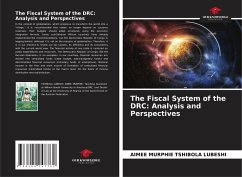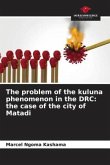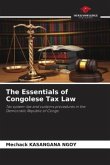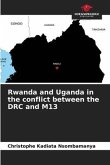In the context of globalization, which proposes to transform the world into a "village," it is recommended that states no longer depend on customs revenues: their budgets should adopt structures using the economic integration formula. Some sub-Saharan African countries have already implemented the recommendations, but the Democratic Republic of Congo is lagging behind, although it is not on the margins of globalization. Therefore, it is in our interest to review our tax system, its efficiency and its consistency with the current world view. The financial activity of any state is centered on public expenditures and resources. The Democratic Republic of Congo, like the Russian Federation, is no exception. In our countries, financial resources are divided into centralized funds (state budget, extra-budgetary funds) and decentralized financial resources (monetary funds of enterprises). National income is the first and main source of formation of centralized financial resources (centralized funds) at the macro level. On the basis of income distribution and redistribution.








